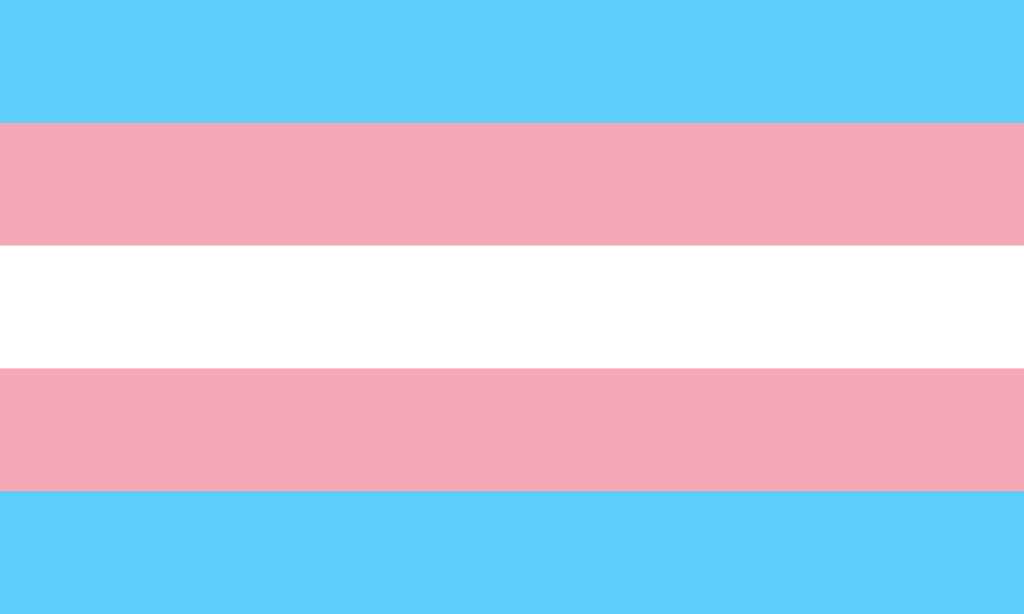i’ve seen FART before. Feminism Appropriating Reactionary Transphobe, i think it stood for.
ruh-roh !
Trans
Unrecongnising
Radical
DipshitsReactionary would be better. There’s nothing ‘radical’ about transphobia.
I would say transphobia absolutely is radical. Of course, by the definition in which it is extreme. Say, for instance, by these definitions:
Departing markedly from the usual or customary; extreme or drastic.
Relating to or advocating fundamental or revolutionary changes in current practices, conditions, or institutions.
The slang form of radical (being a synonym for excellent/wonderful) is merely a single definition, and when talking about politics (I hate to liken transphobia to a “political” issue, but it is heavily intertwined with politics now), its denotation is that of the quoted definitions above.
IMO transphobia is too close to the political and societal status quo to call it ‘radical’ - most people weren’t quite on board with trans people in the first place, and any legal provisions in favor of trans people were usually introduced relatively recently.
I highly disagree. Transphobia is not a majority opinion, and the only reason trans issues have gotten a political spotlight as of late is as a scapegoat. For instance, take the results of a poll of US citizens by Pew Research Center in 2022:

I would thus argue that opposition of trans rights has in recent history been radical. Very few US voters stood in opposition of protections of trans Americans less than 3 years ago.
According to your link, 60% think that your sex must be the sex assigned at birth (54% in 2017, better but not great, either). Kind of at odds with the first number that has most people in favor of protecting trans people from discrimination. Using trans people as scapegoats wouldn’t work if a lot of people weren’t already at least on the fence about trans people.
It’s true that according to that poll, I’ve overestimated the transphobia of the average american, though.
While 60% is a high figure, much of that 60% would not go out of their way to discriminate against trans folks. I know, that’s conjecture, but anecdotally, even in republican dominated areas I’ve visited, I’ve found far fewer than 60% of people not willing to refer to me by my pronouns, despite not passing (I’d say it’s less than 10% in my experience, but of course different areas can be much better or much worse). And that’s recently, during this period of intensely transphobic government. I think there’s more nuance to analyzing the results, hence why Pew said it’s a seemingly complex topic. I believe much of that is simply ignorance; lack of education on gender. That would be one possible explanation for the discrepancy between those two questions. But what I’ve experienced in my own life, having been here since I was born, is that nowadays, visible transphobia is still not the norm (not a majority opinion), hence why I’d consider it radical. I can’t analyze the inner thoughts of everyone I interact with, but most people I have simply used the name and pronouns I gave them without question (albeit with occasional—almost exclusively accidental—mistakes). Granted, I must admit that I rarely interact with people who aren’t Gen Z or Millennials, and I can imagine the experience would be much different with older people, as polls frequently show significantly higher acceptance among younger populations.
Now if you want to talk about microaggressions, the picture is a lot muddier. But I can only really comment on what is obvious to me.
EDIT: I think the best way to describe it is that most people just don’t care. Now, it’s different when it comes to employment and housing—that’s a dumpster fire. The unfortunate fact is that people who control housing tend to be older, and also tend to heavily lean Republican, both of which dramatically increase chances of discrimination. Despite laws against housing and employment discrimination on gender identity in my state, it’s very clear that it’s a huge problem, hence why I am applying for housing and employment under my given name, and won’t be changing my legal name until after I’m financially secure. People in positions of power tend to be far more discriminatory than the average person, especially when housing and jobs are stretched so thin.
When I first heard ‘TERF’ I thought it was ‘TIRF’ for Inclusive. It caused me to inadvertantly piss off some TERFs when I kept treating them as someone who supported trans rights. Like, I thought it meant a person was trans themselves and a radical feminist.
Apparently nothing pisses off a transphobe like attributing a level of humanity they’re trying to reject.
Now I know better and I’d fuckin’ do it again.
Feminism Appropriating Radical Transphobes.
I prefer me some TIRM
Trans Inclusionary Radical Misogynist
Trans women are women, and that’s why they belong in the kitchen!
The most affirming misogynists
Ewwphoria-inducing
That’s one way to start a
TERF war.
personally im a fan of FIB Feminist Identifying Bigot They call trans people “trans identified <misgender>” so why not turn it on them? They’re not feminist. One problem is that it might give some credence to their shit terminology
I’m not trans, but if someone labels themselves “radical” they’ve gone too far.
Keep living your best lives, you deserve it
Is radical a bad word? Its use is generally associated with revolutionary politics. The usage of the term by TERFs stems from second wave feminist theory. They have to specify that they are Trans Exclusionary to distinguish them from radical feminists as a whole, who are not necessarily Trans exclusionary.
But TERFs aren’t radical. There is nothing ‘radical’ about transphobia.
Agreed. Only its obsolete connotation — hazardously unmeasured zealotry — would apply.
That they describe themselves as the positive kind of radical unironically speaks to how deeply they misunderstood feminism from the start.
speaks to how deeply they misunderstood feminism from the start.
Well, they did and didn’t. They are stuck in the past. 2nd wave feminism and current day white feminism. It’s, not good, but it’s not exactly ‘misunderstanding’ just focusing on entirely the wrong things.
That or yeah, they’re lying about being feminists, which… considering they side with and use fascist talking points wouldn’t exactly be surprising.
I could see that, and I’m sure you’re right that it’s a mixed bag, ultimately. Also I agree that it’s a common misunderstanding among second wave feminists.
I just meant that a key thread in their prejudice appears to be a kind of reciprocal othering or tribalism which accepts the imposition that gender is defined by sex, and thus interprets the struggle against the patriarchy more literally as a form of societal trench warfare. From that perspective, there can be no trans women by definition, only untrustworthy defectors who leapt over the proverbial trench, and a proper #radical feminist won’t forget and will keep her vigil.
Pulling that thread would seem to unravel their transphobia to reveal internalized misogyny, since they misunderstood feminism as misandry from the start.
It’s just a guess, however. I am young and often wrong.
Excellent points!
Likewise!
AFAIK, TERFs don’t usually describe themselves as TERF, they just call themselves feminists, sometimes also ‘radical’.
They did originally, the term has just become loaded as time goes on and so they’ve generally switched to the term “gender critical”, amongst others.
a common understanding of radical by self described radicals is “targeting the root of an issue” or the “wanting large systemic changes” that follows from that.
for radical feminists this means recognizing patriarchal power structures as the root of most gender related opressions and wishing to overcome them. while we can critique their exact analysis, i think the idea that many opressive acts are symptoms of deeper systemic opressions maked a lot of sense.
please don’t let opressors convince you that liberation in itself goes too far. a better world is possible and the struggle for it is righteous.
How dare anyone stand against the status quo, am I right?







